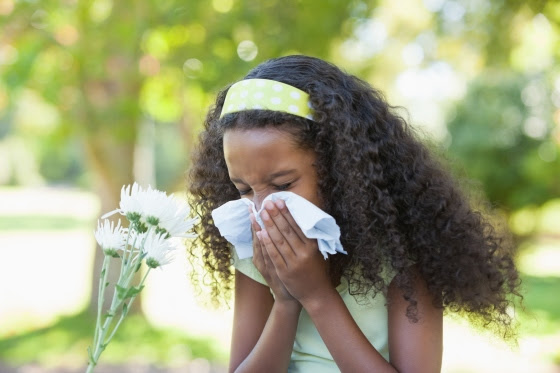Spring routinely spells misery for allergy sufferers. A recent study revealed that most patients don't try to manage their symptoms until it's too late. Seasonal allergies are commonly referred to as hay fever. They cause the body to overreact to airborne pollen and mold. Birch, cedar, cottonwood and pine trees are big allergy triggers in the spring. They release pollen in the air, which can get in the nose of someone who’s allergic and cause a reaction. However, there are plenty of ways to ease allergy misery and keep asthma symptoms in check.
What are the common allergy symptoms?
- Runny nose
- Watery eyes
- Sneezing
- Coughing
- Itchy eyes and nose
- Dark circles under the eyes
What are ways to minimize these symptoms?
- Spring cleaning. Dust and cobwebs can accumulate over the winter. Mold can also build up in bathrooms and the basement, particularly in spring when humidity rises. Furry pets may also start shedding in spring, leaving more dander and hair around the house. Cleaning the house, vacuuming and washing upholstery can help remove allergens from the air and help ensure your nasal passages stay clear.
- Consider asthma. Many people with seasonal allergies have asthma. If you have a nagging cough or trouble breathing, talk to an allergist. These specialists can diagnose asthma and help you manage your symptoms.
- Clean the air. You'll breathe easier if your air is clean. The best way to do that is with a HEPA room air cleaner rated with a Clean Air Delivery Rate (CADR). If you have central air, change your air filters every three months and use filters with a MERV rating of 11 or 12. Steer clear of ionic air filters, which make dust and pollen particles stick to whatever they touch. These air filters don't provide much benefit to those with allergies, the asthma and allergy group cautions. They also produce ozone, which is a health risk.
- Keep windows closed. In spring it's tempting to open the windows and let in some fresh air, but this allows pollen to blow inside your home and settle in your rugs and furniture. This can cause allergy symptoms to flare up. Keep your windows closed and use air conditioning with a new air filter.
- Stay inside. Try to stay inside between 5 a.m. and 10 a.m. during ragweed season. Schedule outdoor activities for late afternoon when pollen counts are usually lower. Keep your grass short and wear a mask if you have to mow it yourself.
- Consult an expert. Don't rely solely on the Internet for expert medical advice. An allergist is a specially trained doctor who can help you identify the cause of your symptoms and determine the best treatment.

What are the over-the-counter allergy remedies?
- Antihistamines - reduce sneezing, sniffling and itching by lowering the amount of histamine in your body.
- Decongestants - shrink the blood vessels in the nasal passageways to relieve congestion and swelling.
- Nasal sprays decongestants - relieve congestion and may clear clogged nasal passages faster than oral decongestants
- Eye drops - relieves itchy, watery eyes
Even though you can buy these allergy drugs without a prescription, it’s a good idea to talk to your doctor first to make sure you choose the right medication.
Click here to visit Touro's Health Library to learn tips and more about dealing with spring allergies.
 Jennifer Driver
Jennifer Driver was born and raised in New Orleans. For undergrad, she attended University of New Orleans where she majored in biology. After college, she spent a couple years dabbling in research and received both a Master of Science in Pharmacology and her MD from Tulane. She loves Family Medicine for its breadth of scope of practice, emphasis on prevention, and continuity of care. She is currently a Family Medicine Physician for Crescent City Physicians, Inc.



No comments:
Post a Comment